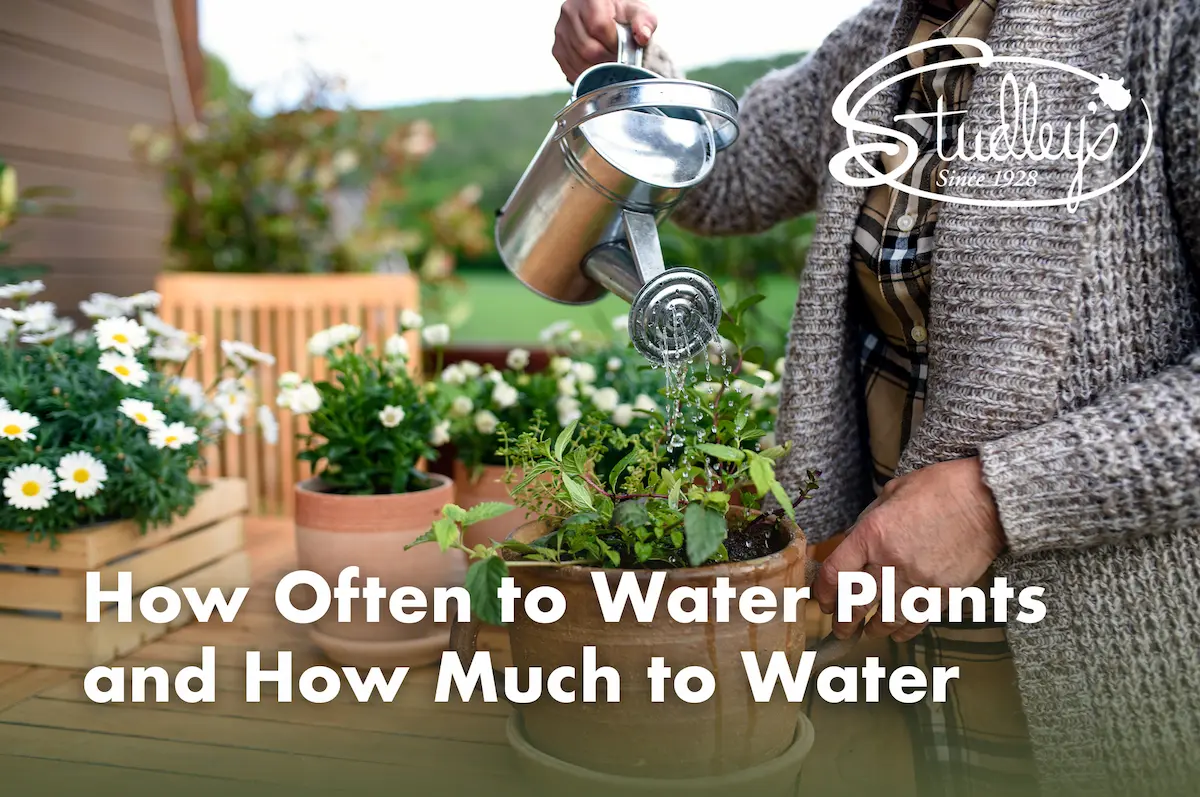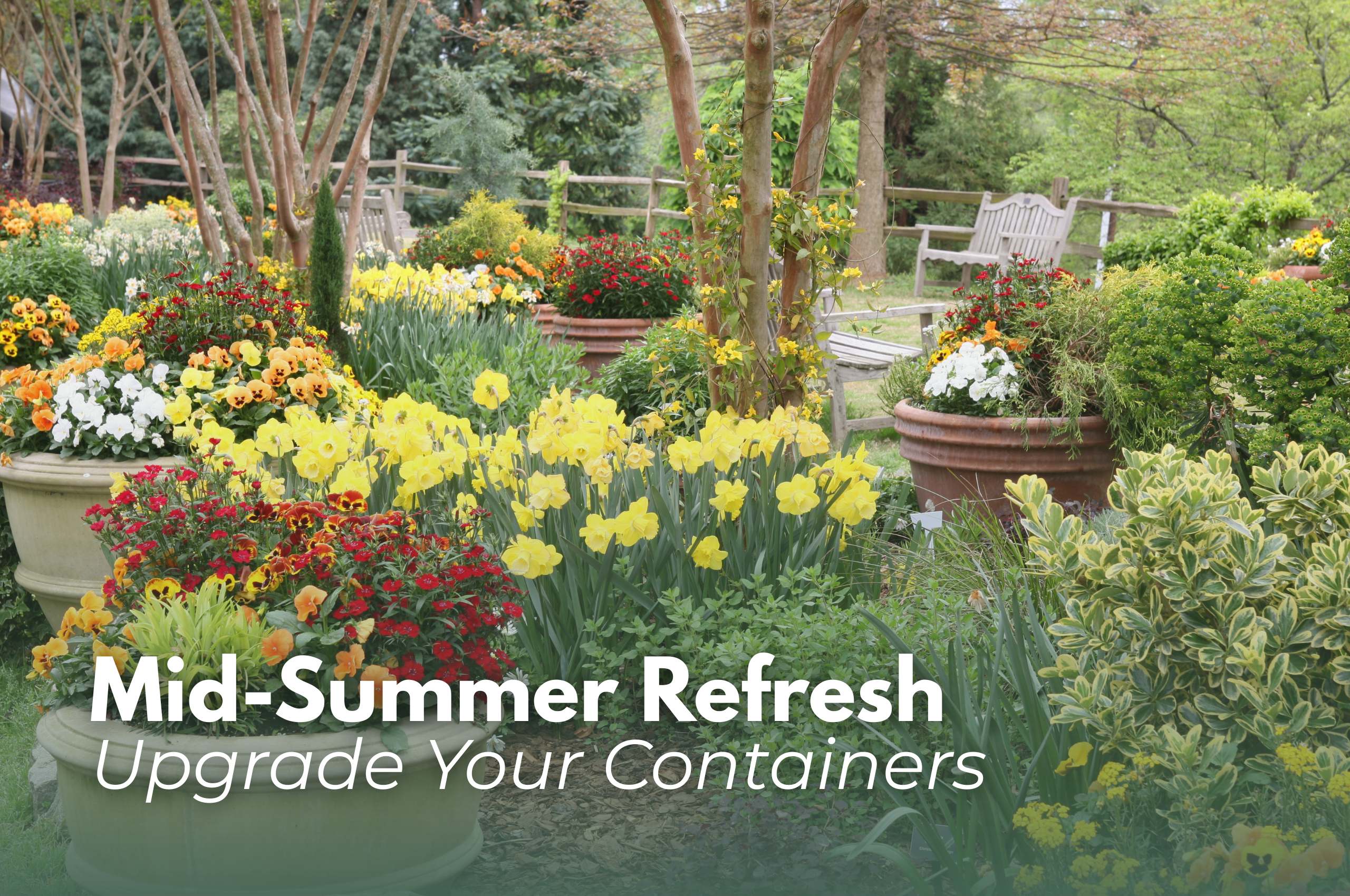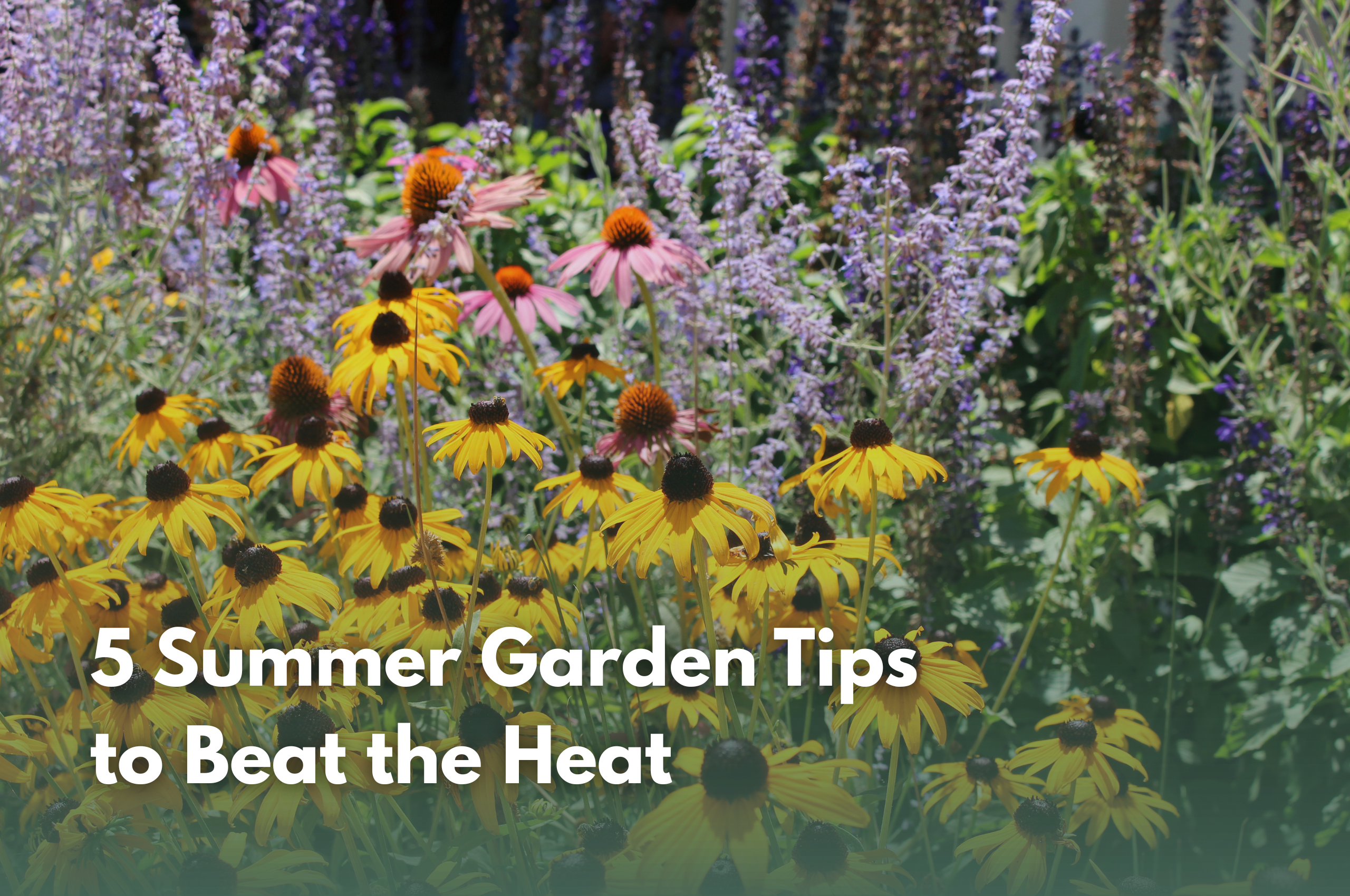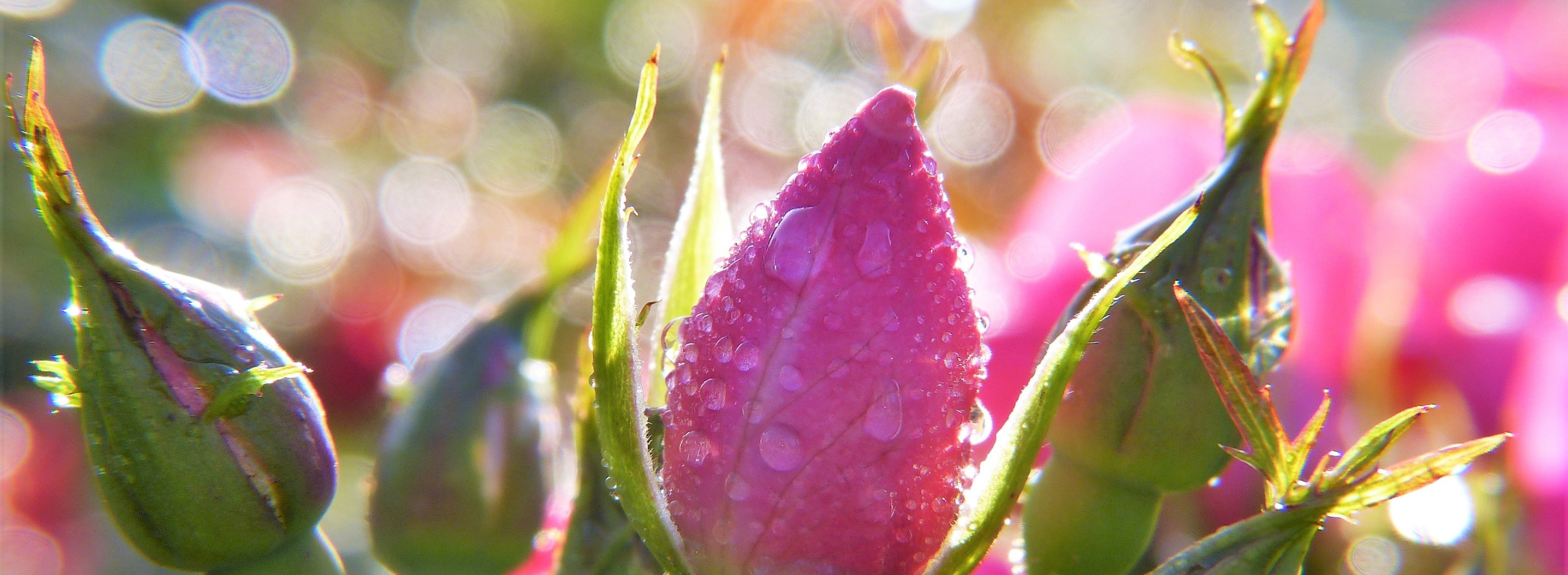Easy Gardening Tips for Beginners to Start Today
Welcome, aspiring green thumbs! Are you ready to dig into the wonderful world of gardening but aren’t sure where to start? You’re in the right place!
Gardening is more than just planting seeds; it’s a journey that offers incredible benefits, from stress relief and a sense of wellness to a deeper connection with nature. Imagine stepping outside and plucking fresh, homegrown herbs for dinner or watching vibrant butterflies dance among your blossoms.
It’s a truly rewarding experience that nurtures both your plants and your soul. And for all you budding gardeners in New Hampshire, Studley’s Flower Gardens in Rochester is your local resource, ready to help you cultivate your dreams from the very first sprout. We’re here to share some simple, easy gardening tips to get you started today!
Why Start Gardening as a Beginner?
Gardening offers a unique blend of mental and physical health benefits that are good for your mind, body, and soul. Spending time outdoors, feeling the sun on your skin, and getting your hands dirty can significantly reduce stress and improve your mood. It’s a fantastic way to get some gentle exercise, too – think of all that bending, stretching, and lifting as a natural workout!
Beyond the personal perks, gardening is a family-friendly activity that’s perfect for all ages. Kids love to watch things grow, and it’s a wonderful way to teach them about nature, responsibility, and where their food comes from. These basic gardening tips will help you cultivate not just plants, but also a healthier, happier lifestyle.
Think Inside the Pot: Start with Container Gardening
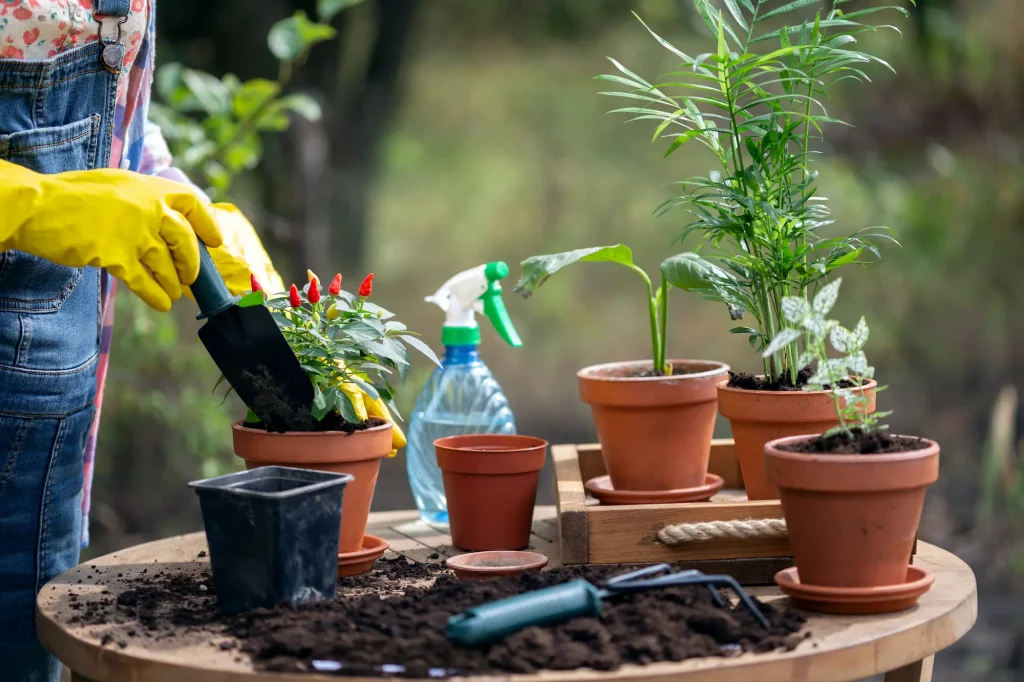
Feeling a little overwhelmed by the idea of a full garden bed? No worries! One of the best first-time gardening tips for beginners is to think inside the pot and start with container gardening. It’s incredibly forgiving, perfect for small spaces like balconies or patios, and gives you complete control over the soil and sunlight. Plus, you can move your plants around if they’re not happy!
For easy edible container plants, consider grape tomatoes, leafy lettuce, and a variety of herbs. When it comes to practical pot depth, remember that different plants have different needs. For herbs like mint, basil, and cilantro, a pot that’s at least 6-8 inches deep is usually sufficient. Tomatoes, on the other hand, are a bit thirstier and need more room for their roots, so aim for a pot that’s at least 12-18 inches deep and wide. Make sure any pot you choose has drainage holes – happy roots are never soggy roots!
Basic Gardening Tips Every Beginner Should Know
Ready to expand beyond the pot? Here are some basic gardening tips that every beginner should know to set their garden up for success.
First, choosing the right location is paramount. Sunlight is a plant’s best friend! Most vegetables and flowering plants need at least 6-8 hours of direct sunlight per day. Observe your yard throughout the day to find the sunniest spots. Good drainage is also crucial; soggy soil can lead to root rot. If you have heavy clay soil, consider raised beds or amending your soil generously with compost.
Second, healthy plants start with healthy soil, so proper soil preparation and planting basics are essential. Don’t just dig a hole and plop a plant in! Amend your soil with organic matter like compost to improve its structure, fertility, and drainage. When planting, dig a hole twice as wide as the root ball and just as deep. Gently loosen the roots, place the plant in the hole, and backfill with soil, patting gently to remove air pockets. Water thoroughly after planting.
Finally, start small with simple, seasonal plants. Don’t bite off more than you can chew in your first year. Begin with a small plot or a few raised beds. Choose plants that are known to be easy growers in your climate and are in season. For example, in New Hampshire, cool-season crops like lettuce, spinach, and peas are great for spring, while tomatoes, peppers, and beans thrive in the summer. This approach will build your confidence and prevent overwhelm.
Easy Gardening Tips: Watering, Soil, & Trimming
Once your plants are in the ground (or in their pots), consistent care is key. Here are some easy gardening tips focusing on watering, soil, and trimming:
- One of the most common mistakes beginners make is overwatering! To recognize watering needs and avoid overwatering, stick your finger about an inch or two into the soil. If it feels dry, it’s time to water. If it’s still moist, hold off.
- Water deeply and less frequently, encouraging roots to grow deeper.
- Water at the base of the plant to avoid wetting the leaves, which can lead to fungal diseases.
- Early morning is often the best time to water.
- Don’t be afraid to give your plants a little haircut! Trimming, or ‘pruning,’ helps direct the plant’s energy into producing more flowers or fruits, rather than just leafy growth.
- For many plants, pinching off the top few leaves encourages bushier growth.
- For herbs, regular harvesting (which is a form of trimming!) keeps them productive.
- Always use clean, sharp shears to make clean cuts.
Attract Pollinators & Boost Plant Health
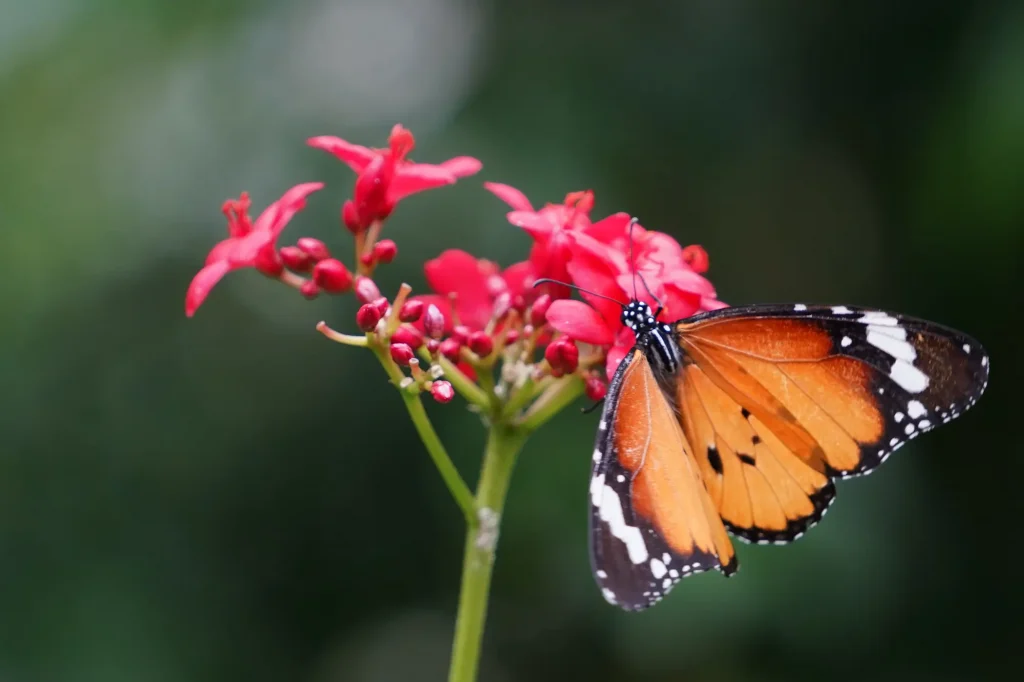
Want to see your garden truly buzz with life? Attracting pollinators is one of the most rewarding gardening tips for beginners! Bees, butterflies, and other beneficial insects are essential for a healthy ecosystem and for helping your plants produce fruits and seeds. To do this, plant flowers and herbs that bring in bees and butterflies.
Think about adding plants like lavender, coneflowers, bee balm, and sunflowers. Many herbs, such as borage, dill, and cilantro (when allowed to flower), are also fantastic for attracting pollinators. Choose a variety of flower shapes and colors to appeal to different types of pollinators.
Beyond just helping your plants, attracting pollinators contributes to the overall ecological health of your area. It’s a small step that makes a big difference, creating a vibrant, thriving garden that’s a joy to behold and a haven for local wildlife.
Enrich Your Garden Naturally
Just like we need good food to thrive, so do our plants! And the best part? You can enrich your garden naturally, often with things you already have around the house. This is one of the most sustainable and easy gardening tips to implement.
Consider using compost, coffee grounds, and eggshells to feed plants. Compost is black gold for gardeners! It improves soil structure, adds nutrients, and helps retain moisture. You can start a simple compost pile with kitchen scraps and yard waste. Coffee grounds are a fantastic source of nitrogen and can be sprinkled directly around acid-loving plants like blueberries or roses. Crushed eggshells add calcium to the soil, which is great for preventing blossom end rot in tomatoes and peppers. Just make sure they’re thoroughly washed and dried before crushing.
By using these natural amendments, you’re not only feeding your plants but also fostering a healthier soil ecosystem. You’re reducing waste, avoiding synthetic chemicals, and contributing to a more sustainable gardening practice. It’s a win-win for your garden and the planet!
Seasonal & Local Tips for New Hampshire Gardeners
Gardening in New Hampshire comes with its own unique charm and challenges, thanks to our distinct seasons. Understanding your local climate is key to successful gardening. While general gardening tips for beginners apply everywhere, here are some pointers specifically for our Granite State gardeners.
The last spring frost in southern New Hampshire is around Memorial Day weekend, and early June for northern areas. This is when it’s typically safe to plant out tender annuals and warm-season vegetables like tomatoes, peppers, and beans.
For cool-season crops such as lettuce, spinach, peas, and radishes, you can often get a head start in early spring as soon as the soil can be worked. Fall is also a great time for planting perennials, trees, and shrubs, giving them time to establish roots before winter. Consider native New Hampshire plants like bee balm, lupines, and black-eyed Susans, which are well-adapted to our climate and support local wildlife.
Every garden is unique, and sometimes you need advice that’s as local as your soil. Don’t hesitate to stop by Studley’s Flower Gardens and chat with our knowledgeable team! We’re here to offer tailored advice on everything from soil conditions in your specific area to the best plant varieties for your microclimate. We love talking plants, and we’re always happy to help you navigate the nuances of gardening in New Hampshire.
Visit Studley’s Flower Gardens for Hands-On Help
We hope these first-time gardening tips for beginners have inspired you to get your hands dirty and start your own green adventure! While articles and online resources are great, there’s nothing quite like hands-on help and seeing plants in person. That’s where Studley’s Flower Gardens truly shines.
At Studley’s, you’ll find an extensive selection of annuals, perennials, trees, and shrubs, all chosen to thrive in the New Hampshire climate. We also stock a wide range of gardening supplies, from the perfect potting mix and organic fertilizers to tools and decorative pots.
But most importantly, you’ll find our team of passionate gardening experts. We’re here to answer your questions, help you choose the right plants for your space, and provide the support you need every step of the way. Ready to grow? Visit Studley’s Flower Gardens today and let us help you turn your gardening dreams into a vibrant reality. Your green oasis awaits!
- Tags: beginners gardening, garden tips
Blog
Get fresh home inspiration and helpful tips from our interior designers

